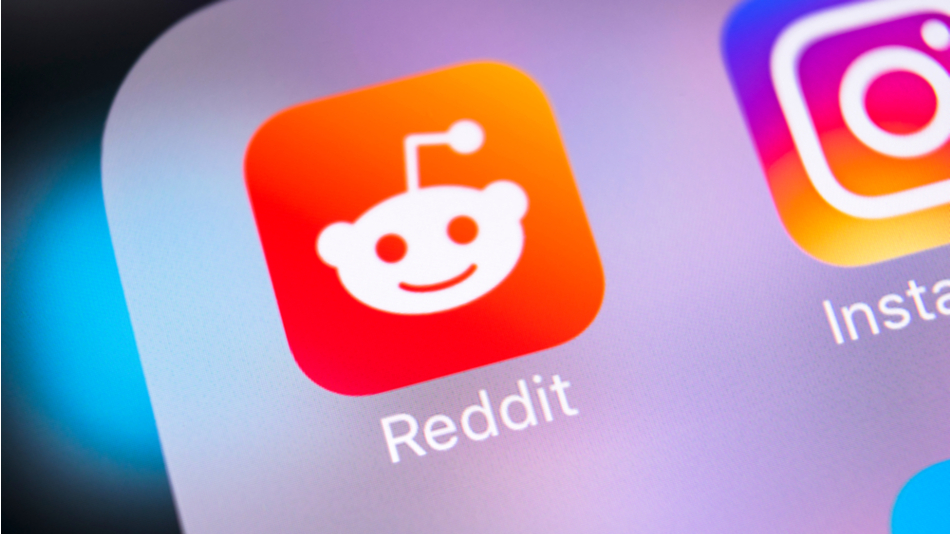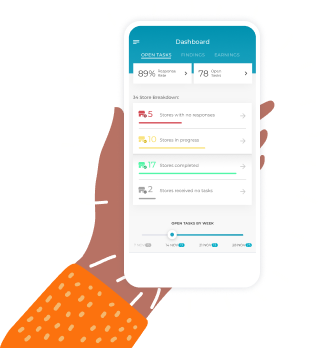2020 was a year of the ordinary becoming the essential. At the beginning of the year, videoconferencing was a niche tool for connecting remote teams, or staying in touch with relatives across the country; now, it’s the backbone of the business economy. The exercise bike was a rarely used contraption that sat in the corner collecting dust and loose items of clothing; now, it’s our entire workout plan.
The grocery store was a place to buy the supplies necessary to feed ourselves and our families; that hasn’t changed. But how we view that “ordinary” role in our lives certainly has. During the most stringent coronavirus-related lockdowns, grocery stores became the embodiment of the term “essential service,” a subtle but important shift in the grocer’s prominence in our daily routines. Grocery stores are one of the few beneficiaries of the coronavirus pandemic. This is thanks to unprecedented demand for everything from bread flour to toilet paper from house-bound consumers—not to mention a lack of competition from dine-in restaurants, many of whom are currently unable to operate in anything resembling normal capacity.
None of it would be possible without the dedication and perseverance of the employees who unload the trucks, stock the shelves, scan and bag the items and keep patrons fed—safely—while maintaining grocery store operations. What are grocers seeing right now through all of this, and what does it mean for the state of the industry? Food retail industry executives might not always be privy to unfiltered straight-talk about product shortages, workplace stresses and acts of daily heroism. Thankfully, Reddit’s r/grocerystores forum sheds some light on the behind-the-scenes happenings at grocery stores across the country. Here are five things we’ve learned about grocery store operations from some of r/grocerystores’ most revealing threads.
Grocery store operations teams are being stretched thin by Covid—and corporate
Having been thrust into the role of front-line worker by the coronavirus pandemic, grocery store employees are feeling unprecedented stress in the workplace. In the early days of the crisis, many food retail industry employers earned plaudits for giving their employees “hero pay” as a way to make up for the additional stresses of the job, whether that’s dealing with ill-tempered panic-buying consumers, or the additional sanitization protocols that were put into place. But as time has passed, some employees report a growing disillusionment with the way employers are treating them, quietly doing away with hero pay or hiring more employees and reducing hours for existing workers.
Meanwhile, certain workers say sanitization protocols are going out the window—even as some customers still refuse to obey mask-wearing mandates. Sick leave continues to be a bone of contention as well, with employees taking time off due to Covid-related health concerns and seeing their wages reduced. The cumulative result of all of this is a growing dissatisfaction among some food retail industry employees who have started considering other lines of work. “I’ll do Uber Eats and DoorDash while looking for something else at this point,” one Reddit user said. For others, it’s even leading to traumatic flashbacks of stressful customer interactions: “For some reason today, a day that I’m not working and I don’t really deal with the same issues at my new job, I’ve been haunted by all of the people getting in my face whether it be customers or employees.”
Despite all of that, grocery employees are still MacGuyver-esque heroes
Even though it’s arguably never been more difficult or demanding to be a grocery store employee, many are still displaying unmistakable pride in the job. Whether that means candidly assessing the pros and cons of an overnight stocking shift or gamely chasing down a would-be shoplifter trying to make off with $1,000 worth of corned beef (we’ve heard of hoarding before, but what does anyone need that much corned beef for?!).
There’s a resourcefulness on display as well: who knew cat litter was effective at cleaning up the massive inevitable olive oil spill on Aisle 13? Of course, there’s no shortcut when it comes to runaway shopping carts—it’s a part of the job, and sometimes it just isn’t your day. There is no shortage of eye-opening tales of life in the grocery store trenches, so much so that some employees were discussing what a (very well-deserved, in our opinion) grocery store worker statue would look like. “My first idea is a worker reaching or leaping to catch a fallen item that a customer is knocking to the ground,” one Reddit user suggested, “like a pyramid of apples or something.”
Product outages are constant—and kind of random
Big-data can help the food retail industry keep tabs on product shortages and supply chain issues, many of which have surfaced during the coronavirus pandemic. But grocery store workers are like the canaries in the coal mine when it comes to product scarcity. They’re likely to notice if a product they’re accustomed to shelving or sorting goes missing for extended periods of time.
Anecdotally, it seems like there’s been a collective run on pepperoni (“No pepperoni EVER!” wrote one user) and many other processed meats—perhaps a potentially logical outcome of homebound office workers looking for lunch sandwich ingredients. Milk has also been flying off the shelves of late, along with canned goods like beans, and whole chickens, as more consumers replace their restaurant meals with hearty home-cooked recipes: “We couldn’t hardly sell them during the summer, now we have problems keeping them in stock.” There have also been anecdotal reports of more esoteric items going AWOL, including taco sauce and sugar-free popsicles.
The shrink struggle is real in grocery store operations
Controlling shrink—loss of inventory due to causes such as shoplifting and fresh-food spoilage—is one of the most important factors in supermarket operations. A successful retail loss prevention strategy can mean the difference between running a profitable store and one that loses money, so every advantage must be pursued to keep losses to a minimum. But there are circumstances where it’s better to take a smaller loss up front and sell more of a particular item than trying to avoid loss altogether.
Consider a pumpkin display during Halloween season: while it may be tempting to try and move every single would-be Jack O’ Lantern, there are cases where a few unappealing specimens—damaged, imperfect, unappealing—may dissuade consumers from buying any pumpkins at all. Rather than holding out for every last pumpkin to sell, one Redditor proposed a strategic cull of some particularly gnarly Goblin pumpkins: “She’s thinking shrink… to a fault,” they wrote of a store manager who preferred to keep the ugly pumpkins on display. “You will be doing her a favor to make it disappear.” Needing to move seasonal product speedily is just one reality of grocery store operations; after all, Christmas display season starts immediately after Halloween, whether the pumpkins are all sold, or not.
Independent grocers are being squeezed hard
The coronavirus pandemic has meant boom times and big profit margins for big-box grocery stores and the grocery delivery companies that feed off of them. But the story is very different at independent grocers. They’re being squeezed not only by the aggressive pricing strategies of the Amazons and Walmarts of the world, but by the hard realities of running any small business during Covid, also considering the outsize impact of staffing and production shortages.
Some independent food retail industry operators have reported margins as low as 1 percent—which is on the very low end of most grocery store operations. One Redditor described the feeling of working for a struggling store: “We lowered thousands of prices across the store to be more competitive. Still didn’t matter. Why come to our store if we didn’t have what they need?” It’s not all doom and gloom, though. Within the very same Reddit thread, another user posted a series of strategies—focusing on fresh produce and meat over the middle of the store; increased reliance on automation—that can help independent retailers stay competitive in the grocery store wars. “It’s definitely tougher to survive as an independent,” they wrote, “but plenty of us are doing it.”
Why it matters
For the buying public, it’s easy to think of supermarkets and grocery stores as a series of faceless corporations running massive supply chains. But with nearly 3 million employees, the industry is, in one sense, a massive collection of individuals, each of whom is facing unprecedented stress in the workplace while the coronavirus pandemic continues to play out. Their jobs will continue to be essential, and their observations can offer insights into the industry’s operations from the ground up.
Need more insights into supermarket and grocery store operations? CB4 helps grocer store managers at Lidl, Wakefern, & Festival Foods get actionable insights from just basic POS data. Learn what we can do for you by watching a short demo.


